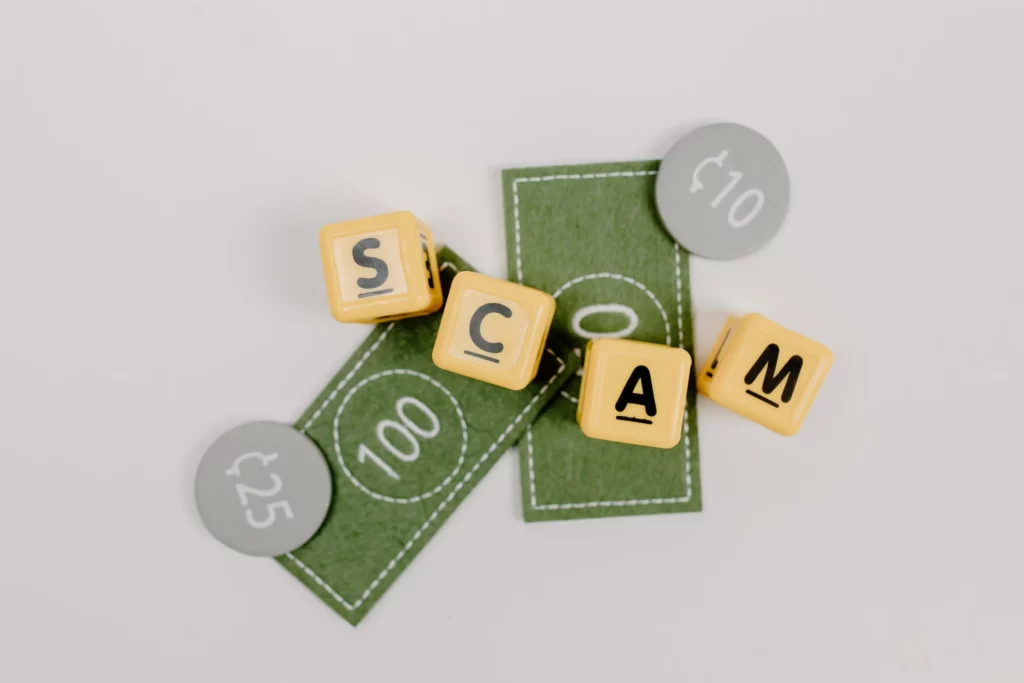Mercari Scams – Everything You Need to Know!
In today’s era of online marketplaces, where buying and selling secondhand items has become increasingly popular, platforms like Mercari have gained immense traction.
With a very user-friendly interface and a massive range of product offerings, Mercari has become a go-to destination for bargain hunters and those looking to declutter their closets.
However, amidst the convenience and excitement of online transactions, the specter of scams looms large, and Mercari is not exempt from such risks.
In this blog post, we will discuss Mercari scams in detail, equipping you with the knowledge you need to securely buy and sell on the social commerce platform.
From sellers lying about the condition of an item and buyers receiving counterfeit items to chargeback and return frauds by buyers, we will explore the various types of scams that buyers and sellers encounter on Mercari.
Moreover, we will shed light on how to protect yourself from falling victim to these scams and what to do if you, unfortunately, fall into one.
By understanding the nature of Mercari scams and how they are done, you can take precautionary measures and enjoy the benefits of buying and selling on Mercari while safeguarding your hard-earned money.
Types of Mercari Scams You Can Face As a Buyer
1- Non-Delivery Scam:

In a non-delivery scam on Mercari, the seller takes your payment but does not ship the item or provide fake tracking details.
After receiving your money, they disappear, leaving you without the product you purchased. This type of scam leaves the buyer empty-handed and vulnerable to financial loss.
It is important to be cautious and verify the credibility of sellers before making any purchases on Mercari.
2- Counterfeit or Misrepresented Item Scam:
As a buyer on Mercari, you can encounter this scam in which you will order a genuine item and the seller will send you a counterfeit or misrepresented item.
There are sellers on Mercari that falsely present fake products as genuine, manipulating their condition or authenticity. They often use deceptive photos or descriptions to mislead potential buyers.
So be very cautious and thoroughly examine listings to avoid falling victim to such scams.
3- Overpriced or Inflated Shipping Scam:

The overpriced or inflated shipping scam on Mercari involves sellers listing items at lower prices but compensating for it by charging unreasonably high shipping fees.
This tricks buyers into believing they are getting a good deal when, in fact, they end up paying more than the item’s actual value.
4- Switched Item Scam:

The switched item scam on Mercari involves a seller intentionally sending a different item from what was advertised.
They may substitute it with a lower-quality or damaged item in the hopes that the buyer won’t notice the switch.
It’s a deceptive tactic used to deceive and defraud buyers on the platform. Buyers should be cautious and verify the received item’s authenticity and condition to avoid getting scammed.
How Buyers Can Protect Themselves from Getting Scammed on Mercari?
1- Research the Seller:

Before making a purchase, take the time to research the seller. Look at their ratings, reviews, and transaction history. A reputable seller will likely have positive feedback from previous buyers. Avoid purchasing from sellers with a high number of negative reviews or suspicious activity.
2- Read Item Descriptions Carefully:
Thoroughly read the item’s description, including the condition, specifications, and any relevant details. Pay attention to any disclaimers or information about the seller’s return policy. If something is unclear or missing, ask the seller for clarification before making a purchase.
3- Use Secure Payment Methods:

Mercari offers various secure payment options, such as PayPal, Apple Pay, and payment through credit cards and debit cards using Mercari integrated payment system. Avoid making payments outside of Mercari’s platform, as it can increase the risk of scams. If a seller insists on an alternative payment method, it’s best to be cautious and consider finding another seller.
4- Check Return and Refund Policies:
Familiarize yourself with Mercari’s return and refund policies. Understand the conditions under which you can return an item or receive a refund. If a seller’s return policy seems unreasonable or restrictive, it might be a red flag. Transparent and fair return policies can indicate a trustworthy seller.
Types of Mercari Scams You Can Face As a Seller
1- Chargeback Fraud:

In this scam, a buyer makes a legitimate purchase on Mercari and receives the item. However, he/she later disputes the charge, claiming the item was never received or was significantly different from the description. This can result in a chargeback, and the seller loses both the item and the payment.
2- Transaction Outside Mercari:

Another common scam that sellers face on Mercari is buyers attempting to persuade them to conduct transactions outside of the platform. The scammer usually suggests using alternative payment methods or platforms so that sellers don’t have to pay the seller’s fees charged by Mercari.
By doing so, the scammer aims to bypass Mercari’s protection mechanisms, leaving the seller vulnerable to potential fraud or non-payment. Engaging in transactions outside of Mercari’s secure environment is highly discouraged, as it eliminates the platform’s safeguards and increases the risk of falling victim to scams or fraudulent activities.
3- Return Fraud:
Another common fraud that sellers really need to be cautious of is return fraud. Dishonest buyers purchase an item on Mercari, use it for a period, and then falsely claim that the item arrived damaged or not as described to initiate a return. They may send back a different or damaged item, leaving the seller with a loss.
4- Phishing Scams:

In phishing scams, sellers receive fraudulent emails or messages that appear to be from Mercari, asking for sensitive information or guiding them to click on malicious links. These phishing attempts aim to trick sellers into revealing their account credentials or personal data.
How Sellers Can Protect Themselves from Getting Scammed on Mercari?
1- Communicate through Mercari’s Messaging System:
Use the platform’s messaging system to communicate with buyers. Avoid sharing personal contact information or conducting transactions outside of Mercari, as it reduces the platform’s ability to assist in case of a dispute.
2- Use Secure Shipping Methods:

When shipping items, choose a reliable and traceable shipping method. Consider using shipping services that provide delivery confirmation or require a signature upon receipt. This reduces the risk of false claims of non-receipt from buyers.
3- Document the Condition of the Item:
Before shipping the item, it is important to take clear photos from multiple angles as evidence of its condition. These photos can be used in case a buyer makes false claims about the item being damaged or not matching the description.
Documentation through pictures helps protect sellers and provides proof of the item’s condition at the time of shipment, ensuring a fair resolution in case of disputes.
4- Trust your Instincts:

Trusting your instincts is crucial when dealing with suspicious buyers or transactions. If something feels off, it’s wiser to exercise caution and decline the sale.
Prioritizing your safety and avoiding scams outweigh the potential risks of engaging in dubious dealings. Trusting your instincts reduces the risk of falling victim to a scam and ensures a secure experience.
I’m Already a Victim of a Scam on Mercari, What to Do Now?

If you believe you have been scammed, there are several actions you can take to try to resolve the issue. Here’s what you can do:
– Contact Mercari Support:
No matter if you are a buyer or seller who got scammed, reach out to Mercari’s customer support as soon as possible to report the scam.
Provide the support team with all the relevant details of the transaction, including the buyer/seller details, order details, and any communication you had with the buyer/seller. Mercari will be able to provide guidance and assistance in resolving the issue.
– Document All Evidence:

Gather all the evidence you have related to the scam, such as screenshots of the item listing, messages with the buyer/seller, and any other relevant documentation.
This evidence will be useful when reporting the incident and may help you in case you need to escalate the issue further.
– Review Mercari’s Policies:
Get familiarized with Mercari’s policies, especially regarding scams and fraudulent activities. Understanding the platform’s rules can help you make a stronger case when reporting the scam.
You can find this information on Mercari’s website or by contacting their customer support.
– Contact Your Payment Provider:
If you made a payment through a third-party online payment service like PayPal or Apple Pay then contact your payment provider and explain the situation.
They may be able to assist you with a refund or provide advice on how to handle the fraudulent transaction. Be prepared to provide them with any evidence you have gathered.
Conclusion:
Mercari is continuously taking measures to combat fraudulent activities but scammers continue to find ways to exploit unsuspecting users. Therefore, it’s crucial to stay informed about Mercari scams to protect yourself as a buyer or seller.
Remember to exercise caution and be mindful of red flags such as unrealistic prices and suspicious communication. Moreover, always pay through secure payment methods by Mercari and report any suspicious activity as soon as find one.
By staying vigilant and informed, you can have a safe experience with Mercari and enjoy the benefits of buying and selling on it.
For more informational guides about Mercari, keep following Reseller Assistant.
Frequently Asked Questions (FAQs)
Q: Can I get a refund if I fall victim to a Mercari scam?
A: Mercari has a buyer protection system in place that offers refund in case a buyer receives an item that is significantly different from the listed description or does not receive the item at all.
Similarly, there is a protection system for sellers as well that ensures that all the seller get their money if there are selling with total honesty and commitment.
Q: Are there any red flags to look out for on Mercari?
A: Some red flags to watch out for on Mercari include sellers with no ratings or negative feedback, suspiciously low prices for popular items, requests for payment outside of the platform, and sellers who are unwilling to provide additional information or photos.
Q: Are all sellers on Mercari trustworthy?
A: While the majority of sellers on Mercari are legitimate and honest, it’s always important to exercise caution when making purchases. Conduct due diligence by reviewing the seller’s ratings, feedback, and previous sales history before making a transaction.







